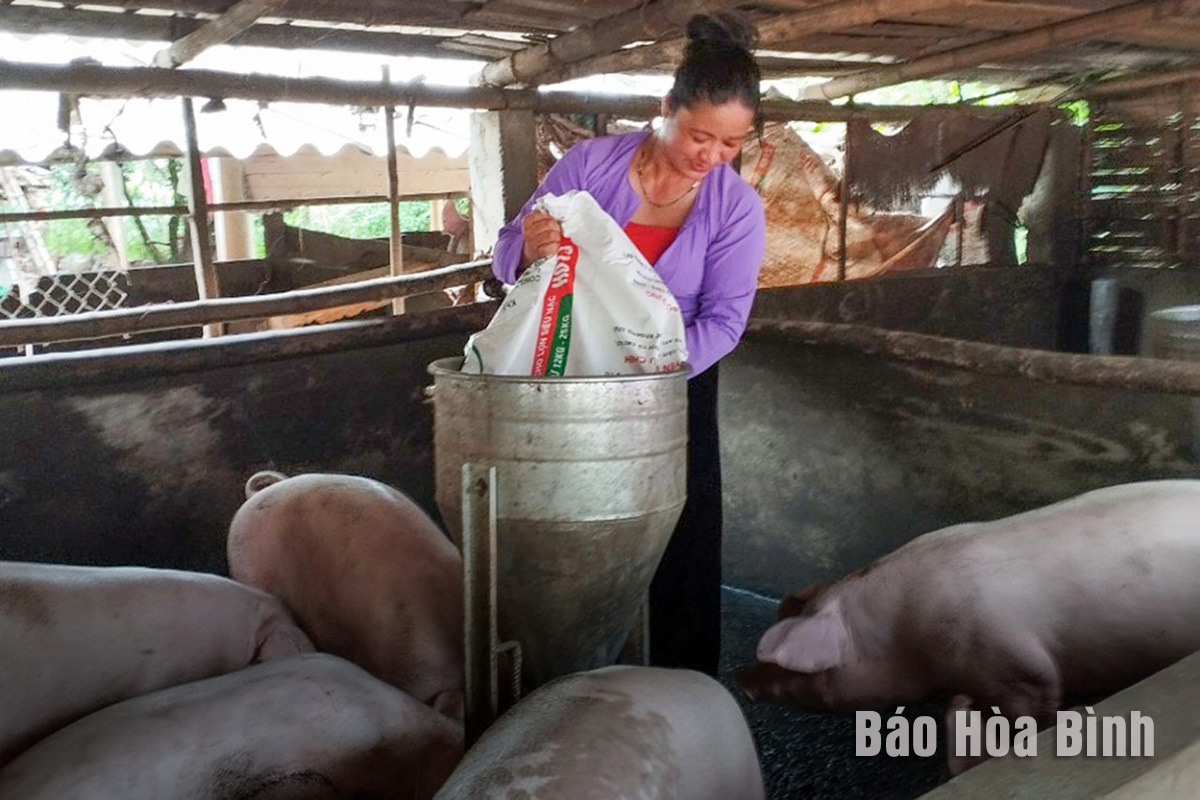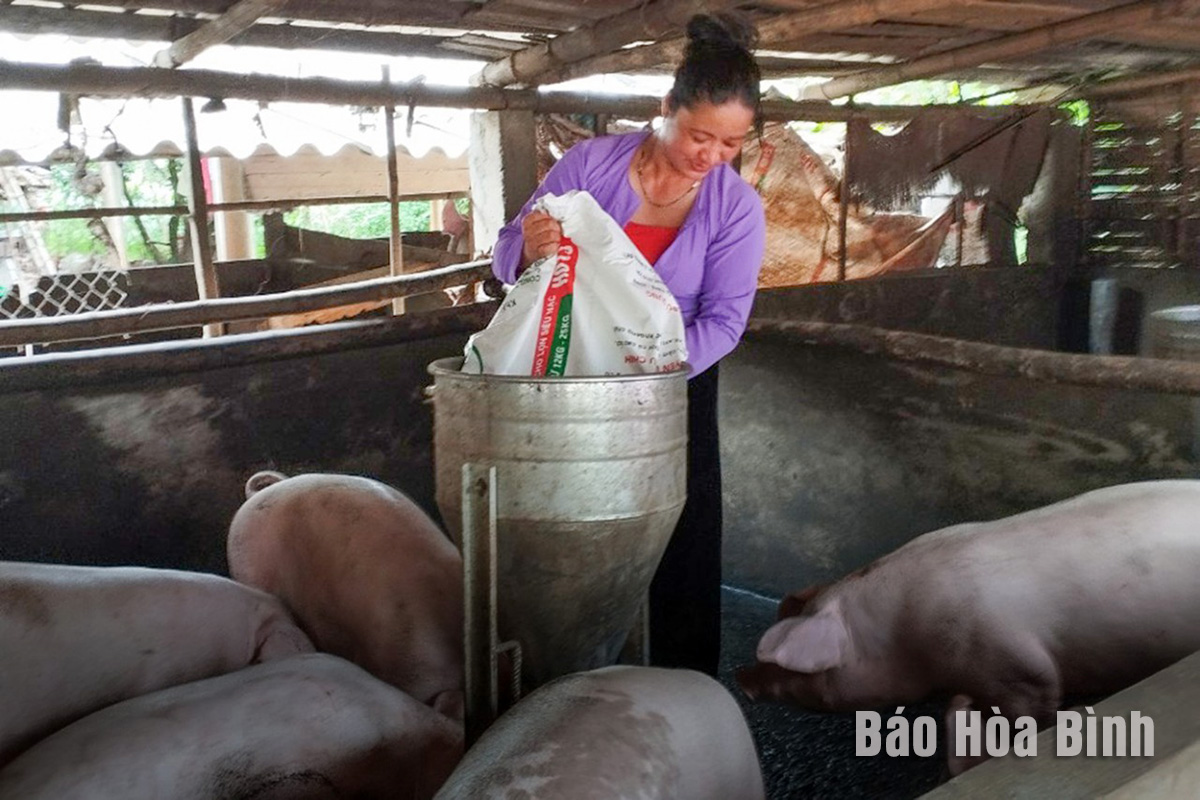
Local women’s unions at various levels have effectively leveraged their roles to connect resources, support members, and foster economic development. Through practical initiatives, they are helping women get out of poverty and build legitimate wealth, increasingly asserting their positions in various social aspects.

A local pig farming model in Bai Khua village, Dinh Cu
commune, Lạc Son district, creates a stable income for family
Kha Thi Luan, Vice President of the provincial Women's Union,
said the "Supporting Women Start-ups for 2017-2025" project (Project
939) features annual activities such as awareness campaigns, training sessions,
workshops, forums, promotional markets, product sales connections, and brand
building. Over the past half of the term, the union has empowered 824 women
entrepreneurs, cooperative managers and business owners. Additionally, more
than 600 women have received support to start businesses through seeds, capital
and financial access. Notably, 102 women joined a startup competition held by
the Central Committee of the Vietnam Women’s Union and the provincial Women’s
Union, with 28 ideas winning awards successfully transforming into businesses.
These ventures focus on agriculture, tourism, and medicinal plants.
The union has also facilitated the establishment of nine
women-led or managed cooperatives and 143 new models, including 27
cooperatives, 40 cooperative groups, and 76 linked groups, concentrating on
agricultural production, handicrafts, services, and tourism. Many collective economic
models and cooperatives have competed in startup competitions, developed
high-quality products with labels, and achieved One Commune, One Product (OCOP)
product rankings.
Impressively, it has helped 1,679 households with poor women get
out of poverty and assisted 1,314 near-poverty households in improving their
status.
Moreover, it has facilitated access to preferential credit from
banks like the Vietnam Bank for Social Policies, the Ministry of Agriculture
and Rural Development, and Lien Viet Bank. The total outstanding loan amount
exceeds 1.975 trillion VND (82.2 million USD), benefiting 32,453 members in
economic development.
Looking ahead, the all-level women's unions will focus on the
2017-2025 women’s start-up support project, collaborate with sectors and
organisations to pool resources, provide vocational training, transfer
technical knowledge, offer household economic management education, and create
job opportunities for women. These efforts will contribute to the effective implementation
of national target programmes on sustainable poverty reduction and rural
development.
According to data from the Hoa Binh Provincial Party Committee, the industrial production index for the first six months of 2025 is estimated to have increased by 20% compared to the same period last year. This marks the highest year-on-year growth rate for this period since 2020.
In the first six months of 2025, Hoa Binh province’s export turnover was estimated at 1.145 billion USD, marking an 18.11% increase compared to the same period in 2024. Import turnover was estimated at $ 804 million, a 17.15% increase, which helped the province maintain a positive trade balance.
The lives of the ethnic minority farmers in Tan Lac district have gradually improved thanks to the new directions in agricultural production. This is a testament to the collective strength fostered through the professional associations and groups implemented by various levels of the district’s Farmers’ Union.
With the motto the "product quality comes first,” after nearly one year of establishment and operation, Muong village’s Clean Food Agricultural and Commercial Cooperative, located in Cau Hamlet, Hung Son Commune (Kim Boi district), has launched reputable, high-quality agricultural products to the market that are well-received by consumers. The products such as Muong village’s pork sausage, salt-cured chicken, and salt-cured pork hocks have gradually carved out a place in the market and they are on the path to obtaining the OCOP certification.
In the past, the phrase "bumper harvest, rock-bottom prices" was a familiar refrain for Vietnamese farmers engaged in fragmented, small-scale agriculture. But today, a new spirit is emerging across rural areas of Hoa Binh province - one of collaboration, organisation, and collective economic models that provide a stable foundation for production.
Maintaining growing area codes and packing facility codes in accordance with regulations is a mandatory requirement for agricultural products to be eligible for export. Recently, the Department of Agriculture and Environment of Hoa Binh province has intensified technical supervision of designated farming areas and packing facilities to safeguard the "green passport" that enables its products to access international markets.



